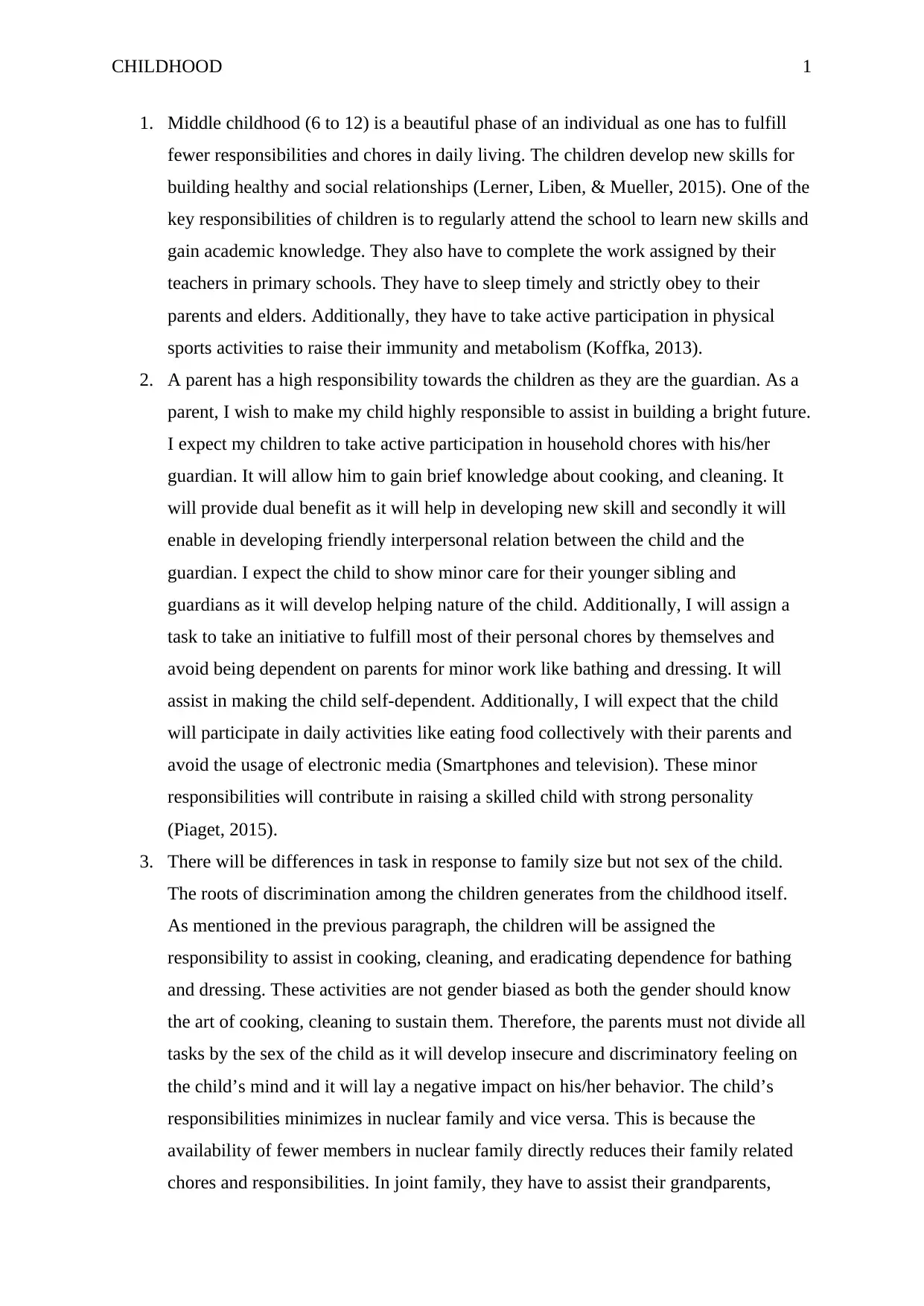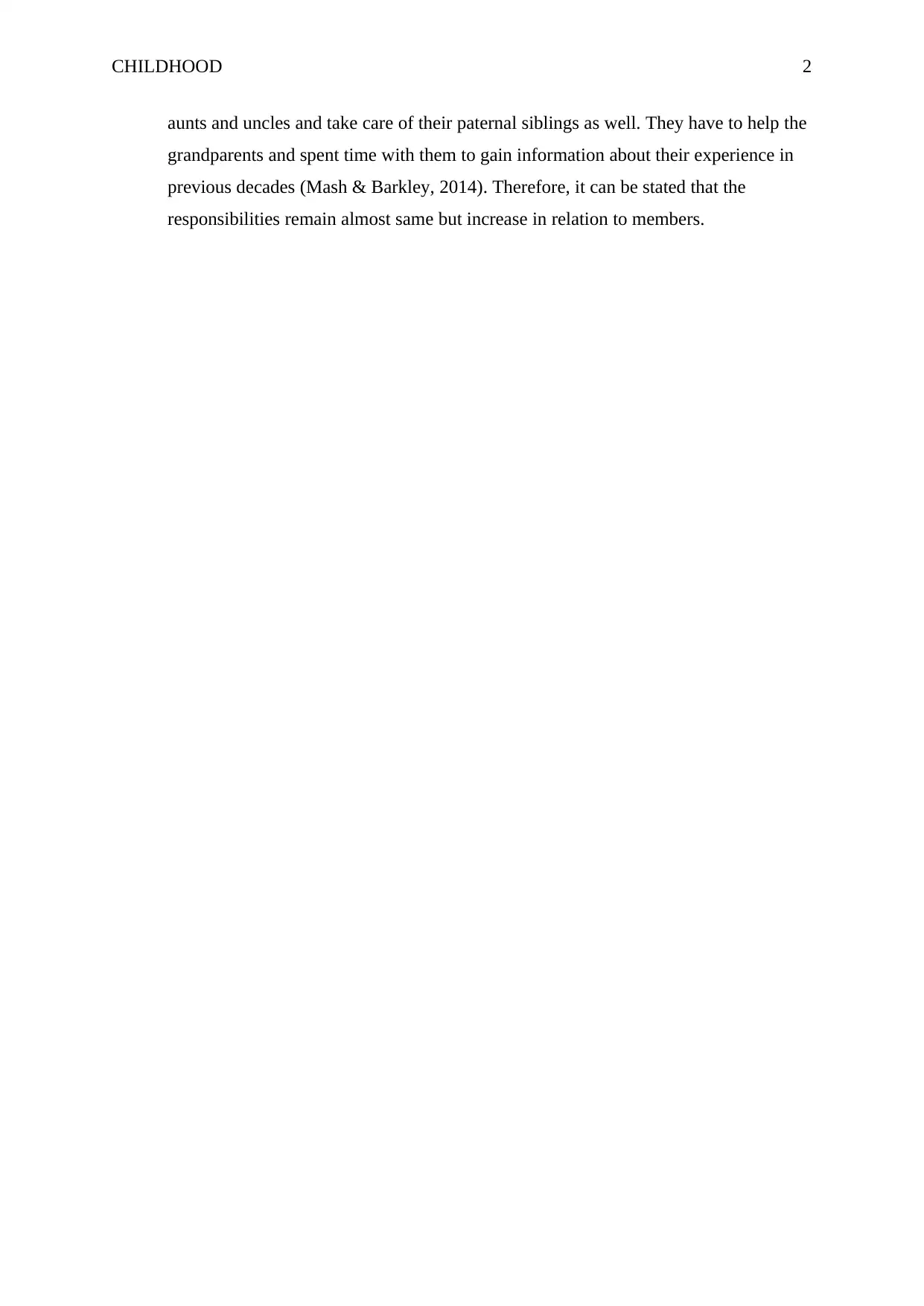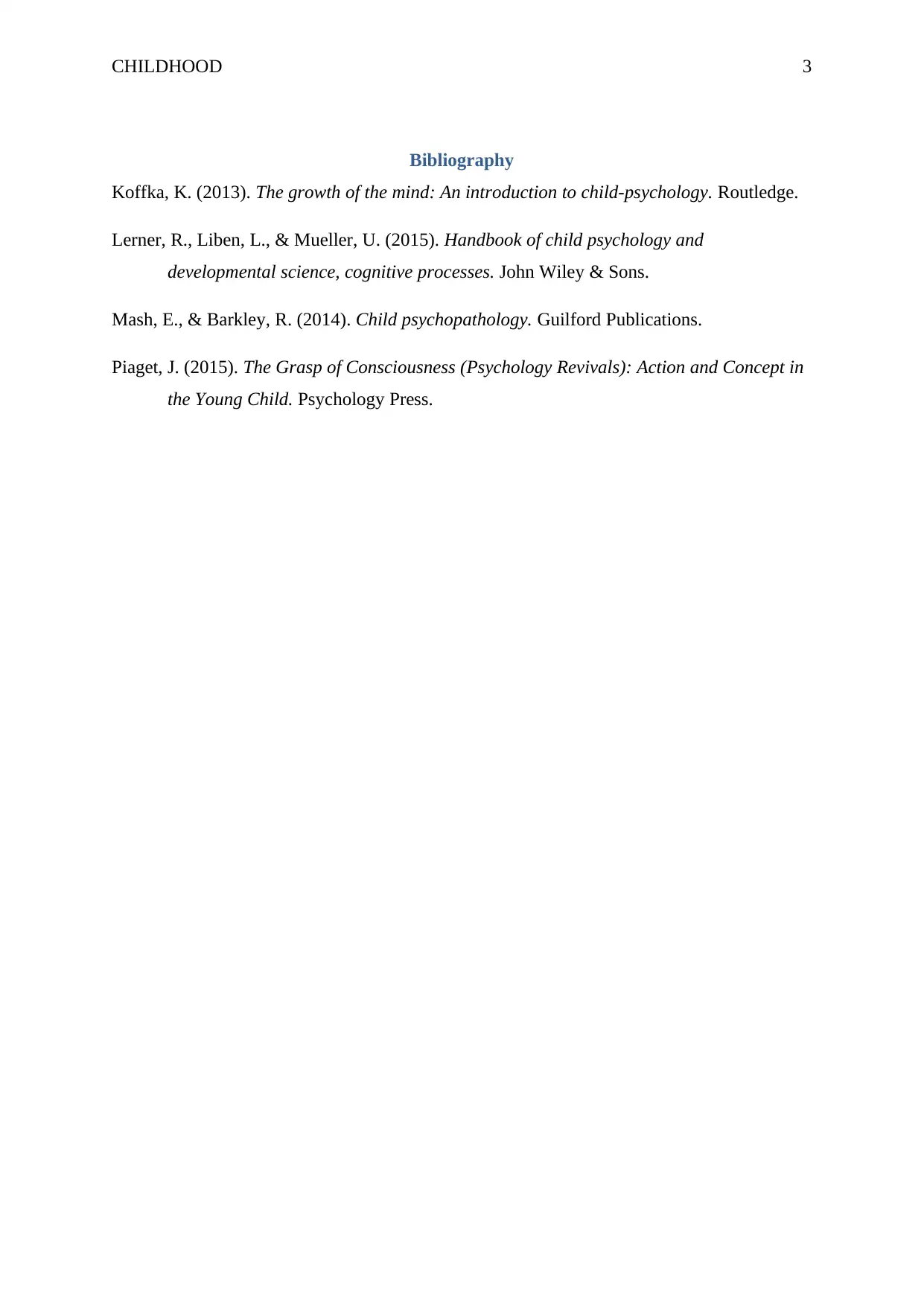PSY 200: Childhood Responsibilities and Tasks in Middle Childhood
VerifiedAdded on 2022/08/19
|4
|672
|45
Homework Assignment
AI Summary
This assignment delves into the responsibilities and tasks assigned to children during middle childhood (ages 6-12), aligning with Erikson's stage of Industry vs. Inferiority. The author reflects on their own childhood experiences with chores and responsibilities, then imagines their approach as a parent, detailing the types of family-related tasks they would assign. The author emphasizes the importance of involving children in household chores like cooking and cleaning, promoting skill development and interpersonal relationships. They also discuss the significance of fostering a helping nature, encouraging self-reliance, and limiting screen time to cultivate a well-rounded child. The author also addresses the potential impact of family size and gender on task assignments, advocating for gender-neutral responsibilities to avoid discrimination. Finally, the assignment highlights the reduced responsibilities in nuclear families compared to joint families, where children often assist extended family members.
1 out of 4





![[object Object]](/_next/static/media/star-bottom.7253800d.svg)